The pool is a game of angles, geometry, and trajectory. It’s also about understanding the physics behind the balls as they bounce off each other. And it all comes down to mastering one simple rule: “The angle of incidence equals the angle of reflection.”
This means that if you want to send a ball back at your opponent with great force, you need to aim for an area where there are many balls clustered together on either side of your target ball.
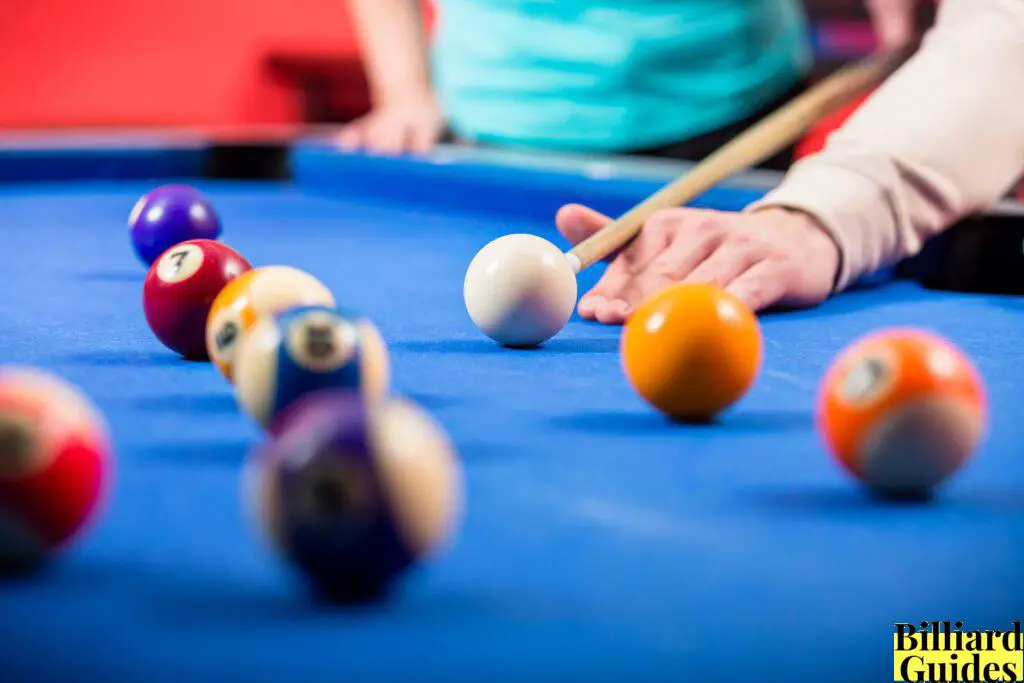
15 Tips to Improve Your Pool Game
Practice your break shot
I think one of the keys to getting better at the pool is to practice your break shot. This is when you can send all the balls in a group to the other side of the table by carefully positioning them in a way that makes it difficult for your opponent to get any shots in.
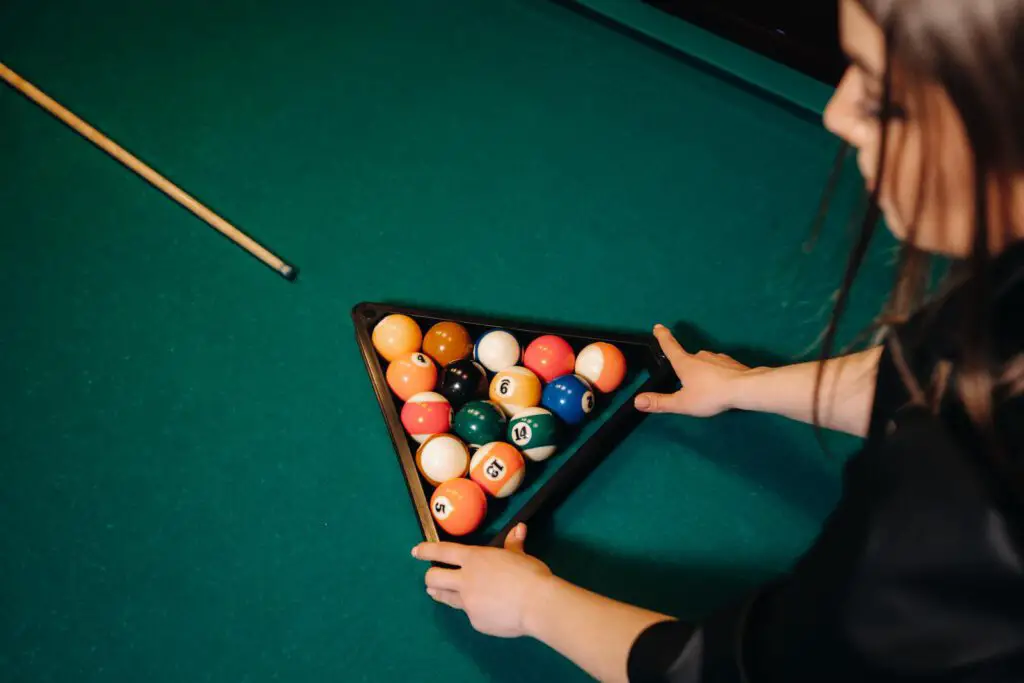
Practice this shot when you’re playing with a friend or a computer because it will help you in a live game situation. It may take some time and mistakes, but there are ways to become better with practice.
Use a heavier pool cue
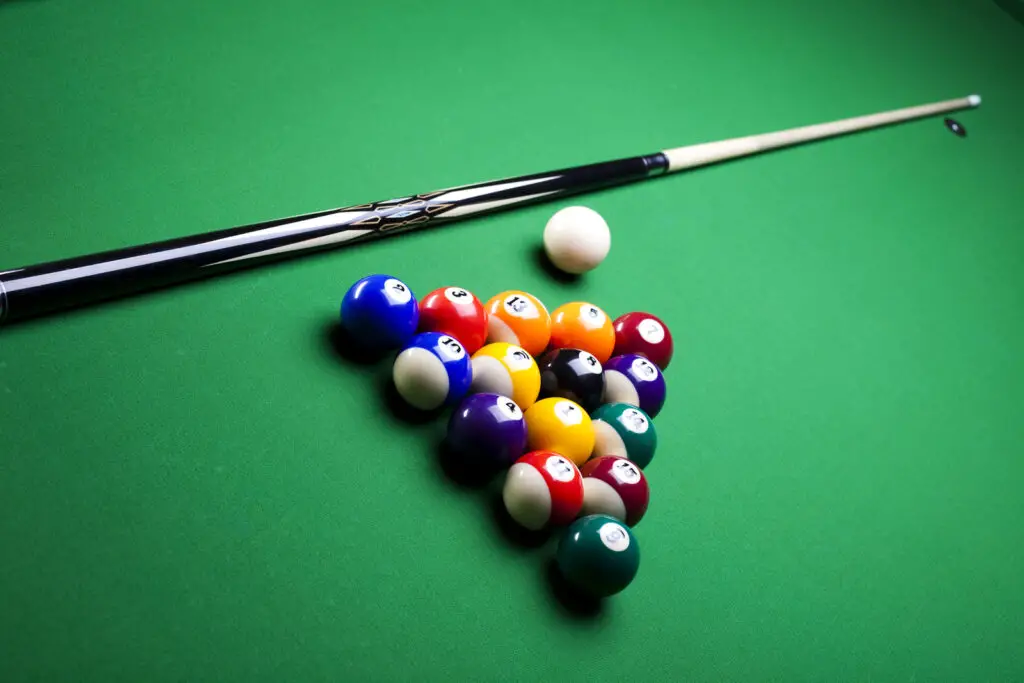
Another way to improve your game is by using a heavier pool cue. This will give you more control over the cue ball when it strikes the object balls. Heavier cues also tend to dampen ball vibration and produce less roll, which can help keep the cue ball under control.
Practice at home or in your backyard
If you want to improve, practice for at least 5-10 minutes per day. You can do this at home or in your backyard with cheaper pool instruments instead of expensive full-size pool tables or phenolic pool balls.
Either way will help you get better fast if you practice often and play games with friends who are also trying to improve their skills of pool.
Use a bridge to increase the stability of your cue stick
One of the most common problems beginners have with pool is that their cue stick is not stable enough. If your cue is wobbly, you’ll find it difficult to hit all of the balls on the table. One way to make sure your cue stick doesn’t wobble is by using a bridge.
A bridge is a piece or strip of rubber over 30mm wide and 4 inches long which helps increase stability by positioning your hand directly on top of the object ball. The bridge also makes it easier for you to set up various shots on the table because it gives you more control over where the cue tip goes.
It might take some time to get used to, but once you’re past that stage, you’ll be able to play pool with an extremely stable cue stick that will help you in most situations.
Use a pool glove
I know some players don’t like the idea of wearing gloves while playing pool, but they can serve a very useful purpose. Pool gloves keep your hand from slipping on the shaft when you strike the ball, which means your contact with it is more accurate.
Pool gloves are also great for adding more spin to the cue ball by increasing friction between your hand and the cue stick. There are 3 different types of pool gloves: mesh, padded, and full leather. Mesh gloves have large gaps between the fabric which allow you to move your fingers freely while wearing them.
Padded gloves have thicker fabric, but are still flexible. Full leather gloves are the most durable type of glove, which makes them good for tournament play since you might have to do a lot of gripping and maneuvering with your hand while playing.
Get rid of distractions and focus on the game at hand
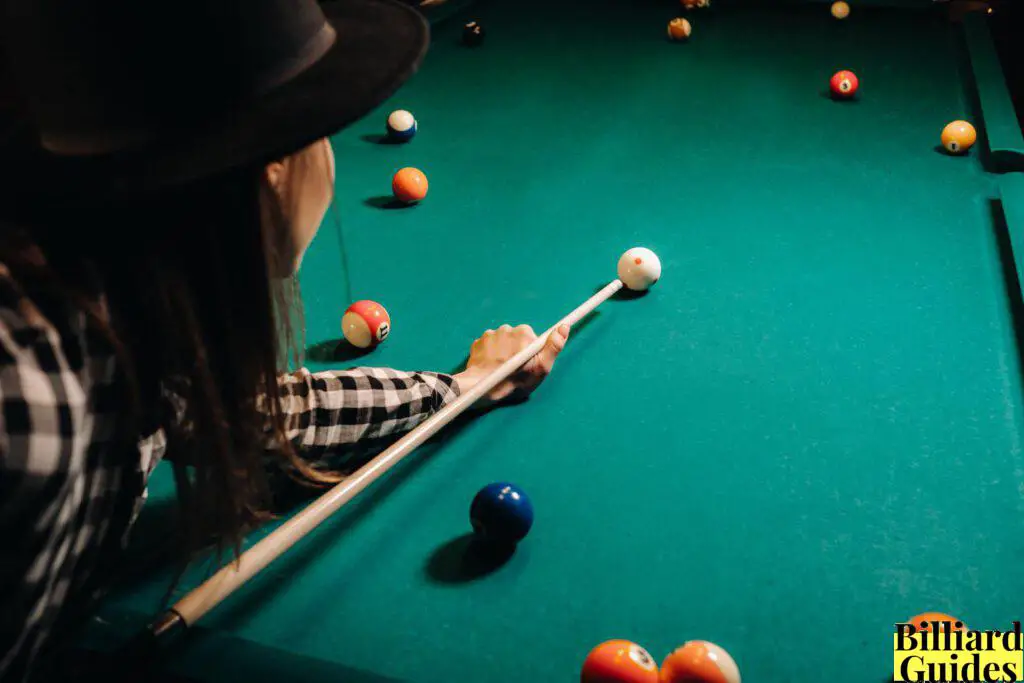
I recommend finding a quiet place to practice pool and getting rid of any distractions. It will make it easier for you to focus on the object ball and not on anything else that might be happening around you.
Play with people who are better than you
Play with people who are better than you. You will learn so much from this, and it’s also a great way to improve your skills.
Practice when you’re tired. Pushing yourself when you’re tired can be beneficial in the long run because it helps you remember what to do in the future when you’re in that state of mind again.
Practice in different conditions or in the dark which might feel more difficult but actually helps build your skill in those situations. Study different techniques and theories about pool, like “The Magic Triangle” by Ray Lucey.
This is just one example of something that might help you get better at playing pool, but there are many books out there on the subject if it interests you enough to explore further.
Keep your eye on the ball, not the table or other players
When playing pool, it is extremely important to keep your eye on the ball. This means that you should not be looking at the table or other players, but rather at the ball itself. This will help you make better contact with the cue ball and increase your chances of making a successful shot.
Some beginners find it difficult to keep their eyes on the ball, especially when they’re trying to focus on other things going on around them. If this is a problem for you, practice in a quiet place where there are no distractions and try to eliminate any outside noise. You might also want to wear gloves to help keep your hand from slipping on the cue stick.
Eventually, you will get used to keeping your eye on the ball and you will be able to apply this technique to your pool game with ease.
Aim for the middle of the ball instead of just trying to sink it
When you’re playing pool, it’s important to aim for the middle of the ball rather than just trying to sink it. This will give you a better chance of making the shot and increase your chances of winning the game.
Some beginners find it difficult to judge where the middle of the ball is, but with practice, you will be able to do this easily. There are many ways to improve your aim, and one way is by using a pool cue with heavier tips and shafts. This will give you more control over the cue ball when it strikes the cue balls.
Practice your break by breaking the balls in order (from one side of the table to the other)
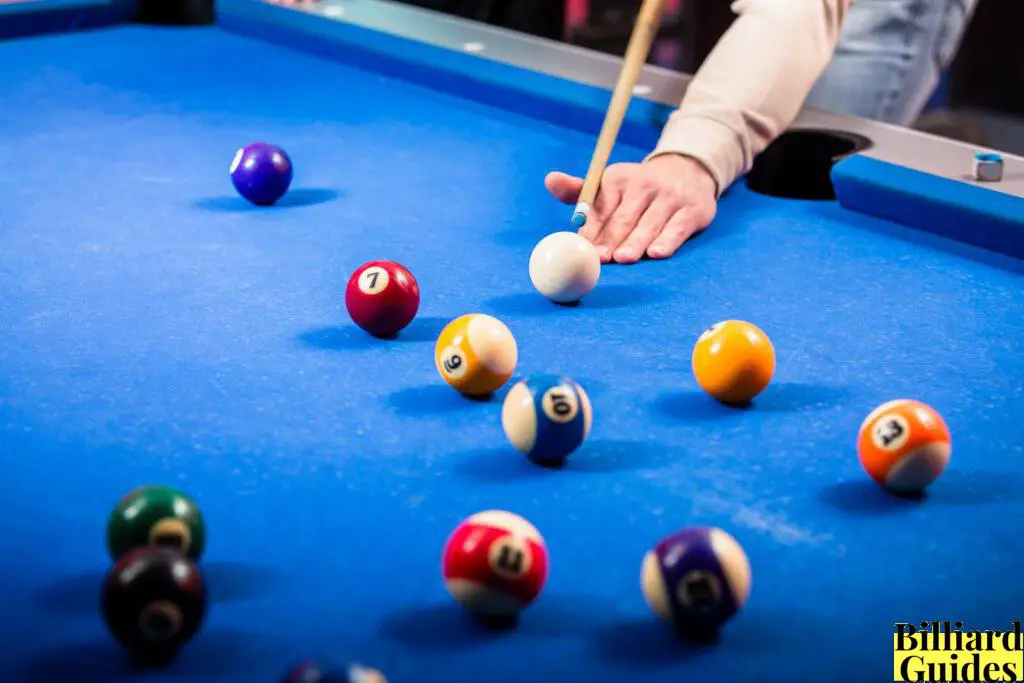
It’s important to learn how to do a break shot if you’re going to become a better pool player. A break is where the balls are scattered all over the table, which means it’ll be easy for your next shot because there won’t be much for you to calculate.
The best way to practice your break is by breaking the balls in order (from one side of the table to the other).
If you miss a ball, make sure you put it back on the table and start over from scratch. Try different angles and speeds for each ball too, so that you can see what works best for your break.
Start with a cheaper/beginner pool cue
A tip for beginners is not to spend a lot of money on a pool cue right off the bat. You may find that you aren’t very good and you don’t want to sink hundreds of dollars into something you won’t play with again.
A cheaper or beginner pool cue can accomplish the same thing as a more expensive one, so don’t waste your money right away.
As you improve with practice, you might want to spend some money on your cue stick if it’s something that interests you. You will be able to tell when you’re ready for an upgrade because practicing regularly should improve your game significantly.
Become familiar with billiard terms like bank, kiss, and carom
When playing pool, it’s important to be familiar with the different terms that are used. This will help you understand what’s happening during the game and make it easier for you to communicate with your opponents.
Some of the most common terms are:
Bank – When the cue ball strikes an object ball and then rebounds off of a cushion before hitting another object ball.
Kiss – When the cue ball barely touches an object ball and then immediately rebounds off of it.
Carom – When the cue ball hits one object ball and then rebounds off of another object ball before hitting the pocket.
Use chalk on cue sticks for better grip and control of the ball
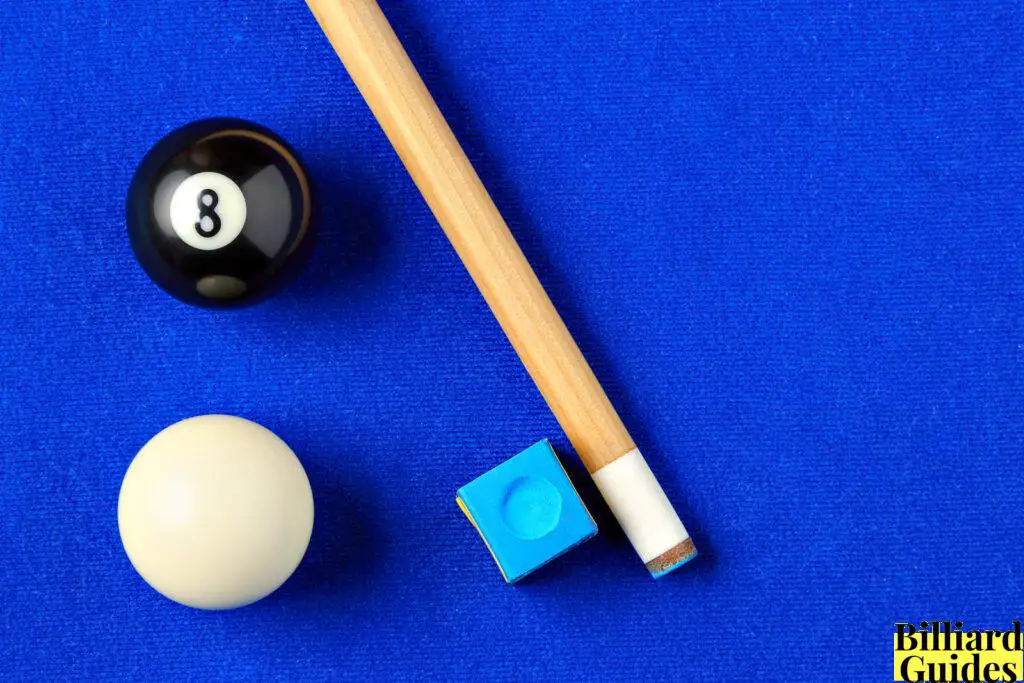
Chalk is a necessary tool for any pool player, as it helps to provide a better grip and control of the cue ball. When the cue ball doesn’t have chalk on it, it’s more likely to slip out of your hand and cause you to miss your shot.
Make sure you chalk your cue stick before every game and be sure to use enough chalk so that there’s a solid layer on the cue ball. This will help you make better contact with the object balls and increase your chances of making a successful shot.
Practice as often as you can until it becomes a habit
It’s important to practice as much as possible, and this applies to the pool too. If you want to improve your game, make sure you play for at least 5-10 minutes every day.
This will help you gain more control over the cue ball when striking the object balls. It will also help you become more comfortable with the different angles and shots you need to make in order to win the game.
The more you practice, the better your chances of winning will be. So make sure you set aside sometime every day to brush up on your skills!
Keep your eyes focused on where you want to hit next
This is something that I’ve found helpful when it comes to the pool. When you’re about to take your shot, try to keep your eyes focused on where you want to hit the cue ball. This will help prevent you from changing your mind about what you’re going to do with it before you actually hit it.
It’s important for this because it helps you decide if the shot is too difficult or not, and what kind of shot makes sense against the current position of all balls on the table.
Once you know what kind of shot to take, focus on making contact with the object ball at a certain angle so that it goes in the pocket.
Conclusion
These are just a few of the many ways you can improve your pool game. By using some or all of these tips, you’ll be on your way to becoming a better player in no time.
Remember to have fun and don’t get discouraged if you don’t see results immediately – it takes practice and patience to improve at anything in life. So keep at it, and I’m sure you’ll be able to improve your skills sooner than you think.
Interesting Articles to Read